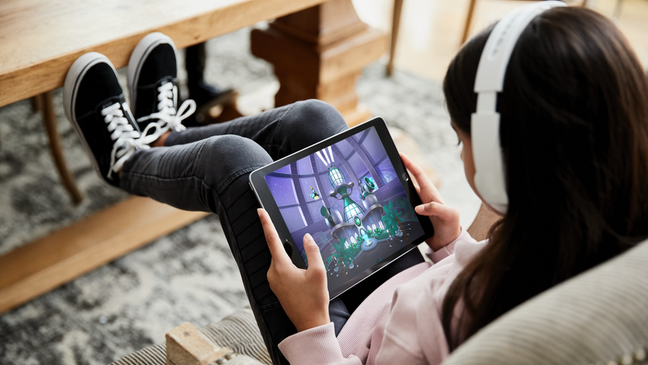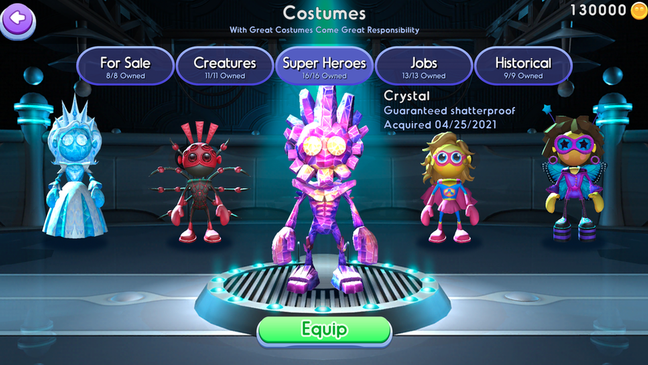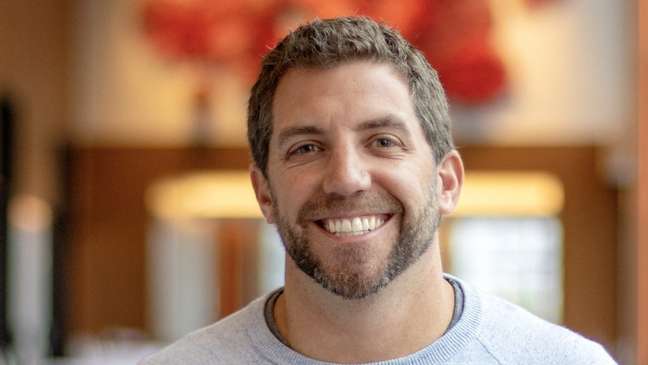An American game called EndeavourRx has received regulatory approval to be used as a treatment for attention deficit hyperactivity disorder (ADHD).

While many parents worry about how much time children and teens spend playing video games and computer games, Kelcey Sihanourath is delighted to see her son Owain with a tablet in his hands.
Now 13, he was diagnosed with Attention Deficit Hyperactivity Disorder (ADHD) in preschool. Since then, the family, who lives in the American city of Savannah, Georgia, has taken Owain to occupational therapists to help him cope with daily hyperactivity.
They also tried medications, but had to stop this type of treatment because the medications made his migraine worse and made him feel sick.
With ADHD hindering Owain’s performance in school for years, Kelcey said she wanted “more, some other option”. “I realized he wanted to understand why he couldn’t concentrate and the frustration he felt when he tried too hard and was still distracted,” she says. “I was heartbroken and felt helpless and useless.”
The help came in a way that seems contradictory at first glance: a computer game called EndeavorRx.

Alien traveling the world
In 2020, EndeavorRx became the first game to be approved for the treatment of children with ADHD by the Food and Drug Administration (FDA), the U.S. regulatory agency responsible for approving the use of drugs and medical treatments in the country.
Currently only available by prescription in the United States, EndeavorRx looks similar to many other games at first glance. You control a small alien traveling in a spaceship through different worlds, having to collect things.
But the game, available via an app, was co-developed with neuroscientists to stimulate and develop areas of the brain that play a crucial role in controlling attention.
The idea is to train a child with ADHD to improve their ability to multitask and ignore distractions.
For this, the game uses an algorithm that measures the player’s performance and customizes the difficulty of the game in real time.
When EndeavorRx is prescribed by doctors, the child’s parents receive an activation link required to start the game.

Kelcey says she was “a little skeptical” at first, but in late 2020 Owain started a three-month program, playing for 25 minutes a day. She then went through a new round last year.
“He admitted the game was a little more difficult than he thought,” he says. “But he understood that it was to help him improve his ability to concentrate. He remained very motivated despite the difficulties and frustrations arising from the activity.”
After each Owain session, Kelcey recorded her performance and monitored her progress.
Academic performance has increased
He soon began to see positive changes in his behavior. For example, the school preparation process became easier and she stopped receiving negative comments from Owain’s teachers.
And, after failing the fifth grade, the boy continued to get high marks in school. “It was great to see my son do so well. And the best thing is to see him have more confidence in himself,” says Kelcey. “He is no longer frustrated and confused for not doing things.”
Eddie Martucci, executive director of Akili, the Boston-based tech company that developed EndeavourRx, says the game is designed to accelerate cognitive progress.

“This is something very difficult to do on a molecular level, like taking a pill. But sensory stimulation can act directly on parts of the brain that control cognitive function.”
Games to help with diagnosis
His company now plans to release the game in Europe in the next few years. In London, the Thymia app uses computer games to help doctors and other healthcare professionals detect and diagnose mental problems, especially depression.
One of these games has the user trying to memorize moving objects, while another is a card game that also tests memory.
In addition to checking the patient’s performance in the game, comments and facial expressions are monitored and evaluated by the application, which accesses the camera and microphone of the mobile phone or computer used.
Thymia was launched by Emilia Molimpakis, who holds a PhD in Linguistics, Cognitive Neuroscience and Experimental Psychology from University College London, UK.
He manages the business with co-founder Stefano Goria, PhD in Theoretical Physics at the University of Turin in Italy.

Goria says the app “collects and identifies relevant biomarkers for understanding depression symptoms, in a practical and engaging way.”
Both the creators of Akili and Thymia say their apps should be used in addition to doctor-led monitoring and treatment, not as a replacement.
Teen psychologist Angela Karanja agrees. “While they are effective inventions, they should be used in conjunction with current questionnaires. [de avaliação do paciente]that have been tested and accepted for reliability and validity, as well as for the opinion of the doctor and also together with other treatments, not in isolation “.
Psychologist Lee Chambers says that while the use of these video games in diagnosing, monitoring and treating mental health conditions is still in the early stages, it appears to have “potential.”
“Focusing on a game has the ability to remove aspects of feeling. These types of mental health games have the ability to broaden access and track changes in the database they collect over time,” he says.
“With that, these games have the potential to be an early indicator of some mental health conditions and show patterns in a way that we currently don’t have access to.”
– Text originally published in https://www.bbc.com/portuguese/geral-62136910
Source: Terra
Benjamin Smith is a fashion journalist and author at Gossipify, known for his coverage of the latest fashion trends and industry insights. He writes about clothing, shoes, accessories, and runway shows, providing in-depth analysis and unique perspectives. He’s respected for his ability to spot emerging designers and trends, and for providing practical fashion advice to readers.








